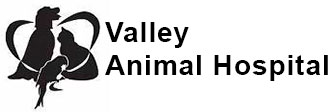Traveling to Mexico
Effective 12/16/2019: A health certificate for dogs and cats is no longer needed to enter Mexico. Dogs and cats may be taken to the border without health certificate documentation, they will be inspected by SENASICA upon arrival. Please follow the guidance on this page.
Requirements for dogs and cats originating in, and proceeding from, the United States of America to Mexico:
(Combinacion numbers 007-35-61-USA-USA and 013-08-504-USA-USA)
-
Upon arrival to Mexico with the pet dog(s) and/or cat(s) in a clean cage(s)/carrier(s), travelers must visit the Mexican Animal and Plant Health Inspection Office (OISA), to contact the official personnel working with SENASICA. The official personnel will verify the following:
-
That the dog(s) and/or cat(s) does/do not present signs of infectious and contagious diseases.
-
The animal(s) is/are free of ectoparasites*
-
The animal(s) does/do not present fresh wounds or wounds in a healing process.
*If at the physical inspection parasites are detected, the owner/user should contact a Veterinarian (anyone) in order he/she applies an appropriate treatment. If ticks are detected, the SENASICA personnel will take a sample of the ectoparasite(s) for its diagnostic at the official laboratory, and will verify that all parasites are removed from the pet(s). The animal(s) will remain at the OISA [Mexican official office] until confirmation that the parasites are not exotic/foreign to Mexico, or are not under an Animal Health Program (Campaign) in Mexico. Otherwise, SENASICA, through the Animal Health General Direction, will determine the measures to be applied. Expenses derived from such actions, should be paid by the importer.
Other requirements/information about inspection at the OISA, upon presentation of the shipment in Mexico:
B. If your pet(s) is/are under treatment due to lesions and/or infections on the skin due to mites, dermatomycosis, dermatophylosis, hairless or similar lesions, you should present to the official personnel of SADER/SENASICA the diagnostic and treatment instructed by the Veterinarian. Such information should be presented in a letterhead, including the professional registration number (or equivalent). Enclosed to the letterhead, it can be accepted a copy of the professional registration number (or equivalent).
C. Compliance of what is indicated in this document, does not exempt the importer of presenting documents, complying with applications and/or procedures requested by other authorities.
D. When the cage/carrier is dirty and/or contains bed disposable (newspaper wood – other materials) toys or edible products, a disinfection will be applied, removing all that is inside of the carrier/cage, for a proper destruction.
E. Only the portion of food used to feed the animal during the day of arrival, will be allowed.
This HRZ only applies to domestic dogs (Canis lupus familiaris), and domestic cats (felis catus).
NOTE: If you travel regularly between the U.S. and Mexico with your dog, you can request to register in the “Pet Program - Frequent Traveler”. For further information please contact the following phone numbers: 59051000 ext. 53611, 54326 and 51020, (0155) 43130154; 43130155 and 43130152.
Effective 12/16/2019: A health certificate for dogs and cats is no longer needed to enter Mexico. Dogs and cats may be taken to the border without health certificate documentation, they will be inspected by SENASICA upon arrival. Please follow the guidance on this page.
